IN THE THIRD JUDICIAL CIRCUIT OF FLORIDA
Administrative Order No.
2008-006
IN RE:MENTAL HEALTH TREATMENT COURT
WHEREAS, specialized courts have been shown to enhance the expediency, effectiveness, and quality of judicial administration; and
WHEREAS, in view of the nature of mental illness and developmental disability. it is in the public interest and in the interest of justice that a new strategy be implemented to address persons who are mentally ill or developmentally disabled, and who are arrested for nonviolent criminal offenses; and
WHEREAS, due to the nature of mental illness and developmental disability, traditional incarceration is probably not the proper placement for such persons, because the prison system is not equipped to either manage such individuals or deter such individuals from repeat offenses,
WHEREAS, there is a recognized need for the Court to expeditiously and efficiently move mentally ill or developmentally disabled defendants, who are qualified to participate in Mental Health Court from jail into the mental health system without compromising the safety of the public;
It is, therefore,
ORDERED:
1. A Mental Health Treatment Court (“MHTC”) shall be operational within the Columbia County criminal division as a program for cases involving defendants who are suffering from mental illness and/or a developmental disability and who are arrested for misdemeanors and criminal traffic offenses. The Chief Judge or a Circuit Judge appointed by the Chief Judge, shall preside over MHTC. MHTC shall follow a pre-adjudicatory diversion model, such as those outlined in section 948.08, Florida Statutes. Referrals to MHTC may be initiated by any court, any of the Third Judicial Circuit Correctional Institutions and Detainment Centers, by the state, the defense attorney, law enforcement, mental health providers, or any other interested person. Prior to the MHTC Judge transferring the case to the MHTC docket, the defendant must enter a written waiver of speedy trial, unless specifically objected to by defense counsel.
2. Upon approval by the MHTC Judge, defendants who are charged with domestic violence involving parents, children, or siblings may be accepted into MHTC upon approval by the MHTC Judge and after consent of the victim(s) and the State Attorney, if the defendant and/or the defendant’s attorney gives written approval to participate in MHTC. Defendants charged with simple battery may be admitted with victim’s consent. MHTC may also hear cases in which a defendant is charged with a violation of probation, upon approval by the judge of the criminal division to which the case is assigned.
3. Defendants who are accepted for participation in MHTC, and who voluntarily agree to participate in the MHTC, shall, at the discretion of the State Attorney, enter into a Deferred Prosecution Agreement, unless charged with a violation of probation. Additionally, the MHTC Judge will enter an order transferring the defendant’s case(s) into MHTC as a court event.
4. Defendants accepted into MHTC will attend court hearings as ordered by the MHTC Judge, based on each defendant’s needs. After the defendant’s acceptance into MHTC, the defendant will participate in ongoing assessment and treatment and engage in discharge planning. The defendant’s participation will end upon the successful completion of the discharge plan. The charges will be then dismissed by the Slate Attorney or the violation of probation will be dismissed by the MHTC Judge.
5. The criterion for admittance into MHTC requires diagnosis, performed by a mental health expert that the defendant is suffering from at least one of the following:
a. A current Axis I mental illness, including Schizophrenia, Bi-polar Disorder, Recurrent Major Depressive Disorder, Post-Traumatic Stress Disorder, or other psychotic disorders of an unspecified nature, or
b. a developmental disability as defined in section 393.063(9), Fla. Stat.
6. Upon a mental health expert’s diagnosis of a defendant of suffering from either (a) a current Axis I mental illness, or (b) a developmental disability, and the assigned judge’s determination that the defendant is mentally ill or developmentally disabled, and after approval of the parties as set forth above, the MHTC Judge shall enter an order transferring the case to MHTC. The clerk shall place the defendant’s case or cases, inclusive of traffic criminal cases, on the MHTC docket.
7. The case shall be transferred back to the original criminal division if a defendant fails, for any reason, to successfully participate and complete MHTC, and the defendant’s right to a speedy trial and formal discovery may be reinstated upon a written demand.
8. Although the public is entitled to access of judicial records, patient treatment records are an exception to this rule and are deemed confidential by Florida law pursuant to sections 395.3025 (7), and 393.13, Florida Statutes, or by court order.
DONE AND ORDERED this 03 day of July, 2008, in Columbia County, Florida

